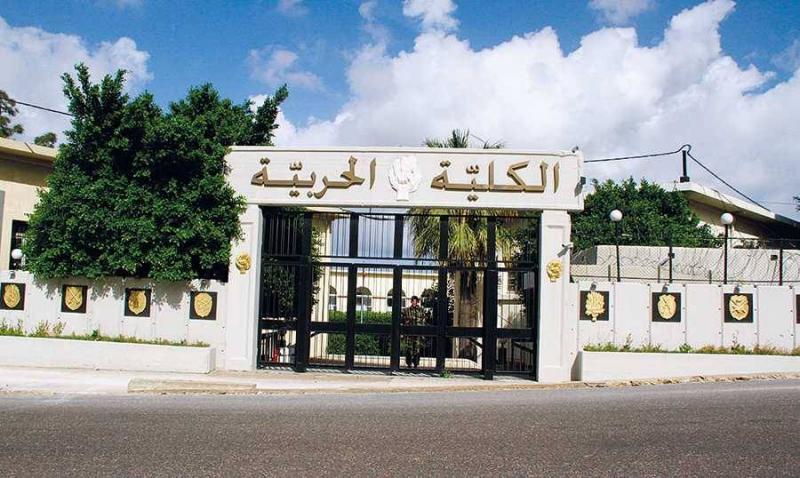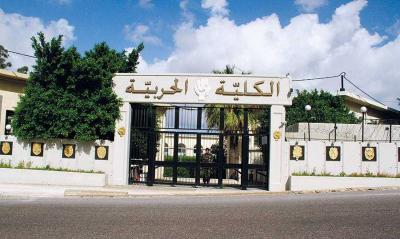There are no signs on the horizon indicating that the relationship between the Ministry of Defense and the military establishment has improved or will return to normal. At every new juncture, the depth of the problem between the two parties becomes evident again. The issue of appointing a chief of staff remains unresolved, and the operations of the new chief of staff cannot be considered normal. Added to these complications is the issue of Army Commander Joseph Aoun's travel without seeking permission from Defense Minister Maurice Sleem, along with problems related to the results of the entrance exams for the military academy.
On the government front, official sources confirm to "An-Nahar" that "what the government has done regarding the appointment of the chief of staff is constitutional, and it is dealing with the situation given its severity. Had the vacancy in the chief of staff position been resolved, the situation would have been more dangerous than it is today," hinting that the Defense Minister is the one who refrained from providing proposals. Notably, he stated: "The appointment of a chief of staff is unconstitutional and illegal. I will not allow this breach, and I insist on not recognizing it until things are normalized." This means that the Defense Minister is not inclined to sign the appointment decree and contradicts claims that he refused to propose candidates for the chief of staff position, saying: "I have initiated more than once to propose the appointment of a chief of staff, and I informed President Michel Aoun, before the end of his term, but after the transformation of Prime Minister Najib Mikati's government into a caretaker government, I informed him that it does not have the right to appoint."
From the Defense Minister's perspective, "there are no fundamental backgrounds, but there is a divergence in the law." Between the two conflicting viewpoints, is the appointment decision still stagnant, without practical effect? It is known that the appointment decision was issued by the Cabinet in the absence of the concerned minister, but it was not accompanied by the necessary decree and lacked the signature of the relevant and essential minister, especially since Article 54 of the Constitution requires the signature of the minister concerned on decrees issued by the Cabinet. Furthermore, the State Council has previously confirmed that the signature of ministers is essential. Thus, how can the Defense Minister deal with the appointment decision? In short, there is no interaction with the appointment at all, as the decision is unconstitutional in his view, as if no governmental decision had been issued in this regard. The greatest evidence of this is Sleem's message to the relevant ministries and administrations requesting not to recognize the new chief of staff.
On the other hand, it appears that the matter is settled at the army leadership. According to the defense law, the chief of staff acts on behalf of the army commander in his absence, and based on this legal principle, the army commander traveled a few days ago to participate in a conference after having refrained from traveling during the period when the position of chief of staff was vacant, to avoid any potential vacancy. It is noteworthy that the trip was very brief to avoid any unforeseen developments. "An-Nahar" learned that the new chief of staff is regularly attending his office, although he has not yet issued any decisions. The army commander is present, and he did not seek permission from the defense minister before his last trip. The army leadership refrains from commenting, considering that there is no breach of protocol, as if "political tensions do not concern them." According to "An-Nahar," Aoun's recent trip was a significant message to the defense minister that the appointed chief of staff is the one who acts on his behalf, and he will not seek his approval before traveling abroad.
Facing this reality, it seems that the relationship between the military establishment and the Ministry of Defense has returned to renewed strain, or it remains tense, as if communication between the two parties is completely severed. What will be the fate? All these issues increase the ambiguity surrounding the fate of the new chief of staff. The political chaos engulfing the country adds to the disorder regarding compliance with the law and the provisions of the constitution. And while the defense minister cannot legally challenge the appointment decision, as challenges should be presented by an interested party who has suffered harm, the legitimate question is: Is challenging the appointment decision still possible? And is the decision considered effective even though a decree has not yet been issued?
Constitutional expert Dr. Said Malik clarifies many essential points related to the constitution and the defense law itself. For him, the constitutional-legal equation is more than clear. He explains to "An-Nahar": "The State Council only considers appeals regarding decisions issued by the government that have the force of execution, based on Article 105 of the State Council's system." He adds: "The decision issued by the Cabinet concerning the appointment of the chief of staff is, to date, non-executable because its execution is contingent upon the issuing of the decree. Therefore, and based on Article 21 of the defense law, the mentioned decision is prima facie binding and cannot be revoked except by a counter-decision, but it is at the same time non-executable since the decree has yet to be issued. Article 21 itself stipulates that the chief of staff is appointed by a decree issued by the Cabinet." He confirms: "Since it is established that the decision to date is non-executable, and it is also established that a non-executable decision can be appealed, which suggests that to date, there is no possibility of challenging this decision, neither closely nor remotely."
Thus, the curtain has not yet fallen on the narrative of the military establishment and the defense minister, and there is no doubt that it will interact at every intersection, whether presidential or constitutional!
### Military Academy
The other emerging issue is the opening of the military academy to new applicants who passed the exams, with no course opened for them, pending the signature of the defense minister, who refrained from doing so due to remarks he made on the results which were not taken into account by the leadership. This file sparked extensive debate in recent days, prompting the army leadership to issue a detailed statement to absolve itself of responsibility and to throw the ball back into Minister Sleem’s court.
The statement included: On 17/8/2023, the Cabinet approved the request of the army leadership for the enlistment and appointment of cadets in military and security agencies, after four years of a ban on enlistment, during which the military establishment resorted to enlisting cadets from active-duty military personnel for two consecutive courses.
On 6/9/2023, the army leadership sent a request to the Ministry of Defense to accept a circular regarding the enlistment of cadets for the army and security forces from among military personnel (males and females) and civilians (males).
On 12/9/2023, the army leadership received a letter from the Ministry of Defense signed by the National Defense Minister announcing its approval of the circular published on the army's official website on 14/9/2023.
On 2/11/2023, the army leadership submitted a letter to the Ministry of Defense, after obtaining the approval of the military council, which included a list of names of the accepted candidates to participate in the entrance exam to the military academy based on candidate ranking tables in the forces.
By decision No. 392 dated 19/12/2023, the military council approved the army commander's proposal to accept the successful candidates in the entrance exam to the military academy as cadets, numbering 118.
By letter No. 2961 dated 2/2/2024, the army leadership sent a letter to the Ministry of Defense that included a list of names for the appointment of the successful candidates in the entrance exam to the military academy as cadets based on the suggestion of the army commander and the approval of the military council according to Article 27 of National Defense Law No. 102/83.
This outlines the facts and dates, and regarding those who applied for nomination and underwent exams, the army leadership presents the following facts:
- The number of accepted candidates reached 2511 based on the specified conditions, including the emphasis on candidates achieving an average of 12/20 in official exams. They all underwent sequential psychological, medical, and physical exams starting from 2/10/2023. Out of these, 773 qualified for the written test and to present before the committee, and after sorting the results and rankings, 118 of them rightfully and efficiently earned the title of cadets.
- The number approved by the government was 173, however, the number of those who succeeded in the ranking without any disqualifying mark was only 118, maintaining sectarian balance (59 from the first category and 59 from the second category), and the military council approved the result.
- It is undoubtedly clear that the army leadership considered the delay in the approval of enlistment, in addition to the general circumstances in the country and the suffering of the Lebanese, including the students, particularly during the COVID-19 pandemic, which applied to the psychological and physical tests only, while the other tests, including the written ones, ranged from average to difficult, according to the level of official exams. The success of the candidates in the exam and ranking is based on merit and efficiency. The leadership did not resort to lowering the average to complete the number, and it cannot open the door to an additional course since that would require a new decision from the Cabinet and additional time, and the results would be similar in terms of numbers and outcomes.
- When applications for nomination were announced, a number of students submitted requests for exemption (due to age) that were forwarded to the Ministry of Defense but have not been resolved.
- The fate of 118 students who succeeded in the ranking remains uncertain, and they need the signature of the National Defense Minister to allow them to join the military academy, knowing that some of them are enrolled in private universities and cannot make a decision regarding their future. This delay in joining leads to the closure of the military academy, impacting the structure and hierarchy of the organization negatively.
Based on the above, the army leadership confirms that there is no room to doubt the results of the military academy and that the examining committee, consisting of qualified officers, adopted the highest standards of transparency, objectivity, and justice to preserve the rights of students who succeeded in the exam through merit and competence.




